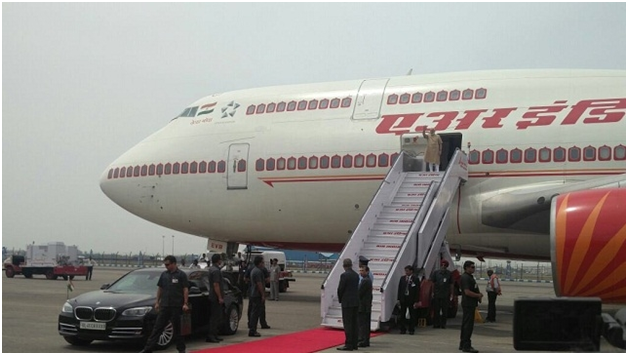No NSG Membership: Indian Diplomacy at its Worst

NEW DELHI: The expected has happened, China and at least nine other countries if not more, have stalled India’s rush for Nuclear Supplier Group membership despite the strong arm diplomacy on public display.
Prime Minister Narendra Modi air dashed to Switzerland and Mexico to obtain their support.
As it turns out Switzerland’s response was not the ‘yes’ that was fed to the Indian media by the overzealous mandarins, but a ‘perhaps’ with conditions attached.
Foreign Secretary Jaishankar went posthaste to Beijing.
He returned without any assurance but was reluctant to admit as much to the media. Instead the plants quoting sources continued, as if NSG membership was inevitable.
Foreign Secretary Jaishankar went to Seoul and camped there while the NSG plenary was meeting.
This was projected in the Indian media as a major diplomatic effort to persuade the member nations for support for India’s membership. Surely it should be clear to all, the officials and the media, that such decisions are taken by governments far ahead of the meeting and Jaishankar sitting in Seoul would make little practical difference to the hard nosed negotiators around the nuclear table.
PM Modi met Chinese President Xi Jinping on the sidelines of the Shanghai Cooperation Organisation meet at Tashkent. He raised the membership issue and urged the Chinese premier to give up his objections and make what the media was told a “fair and objective” assessment of India’s application.
Response: silence from Xi Jinping that in diplomatic parlance was a flat ‘no’.
This was confirmed even to the Indian officials and the pliant media that had been acting as if a Chinese waiver was on the cards, as chief Chinese negotiator, Wang Qun, Director General of China's Department of Arms Control, told reporters in Seoul that there was no consensus on the NSG membership of non-NPT countries like India.
The push for NSG membership experts told The Citizen, was diplomacy at its worst.
One: it was last minute and shown to be so with PM Modi making rushed stops to two NSG countries for little more than turning their objections to a ‘yes.’ That he did not succeed with Switzerland was clear from its conditional support that really did not amount to much at the Seoul meeting.
Two: it was aggressive that does not go down well with several nations, and certainly does not change positions taken earlier. The objections raised by at least nine nations, if not more, at the meeting was ample proof of this.
Three: there was this refusal to respect the view reached by NSG members, with the last minute efforts to make them change their mind seem as strong arm tactics by India.
Four: the briefings to the Indian media and the reportage suggested a) a certain ignorance in South Block about the way China and its Foreign office works and b) what former diplomats were worried about, the perception created that China was against India, and that it indeed was being ‘contained’.
And Five: there was no need for this ‘in your face’ diplomacy that turned a foreign policy ambition into ‘desperation’ visible to the entire world.
In short, the last few days have exposed a certain chink in the armour that most governments would use diplomacy to cover. It is not clear who gave Prime Minister Modi the idea that a little push would secure him a place at the nuclear high table, and why he was not advised that this would not work at this stage but required consistent and focused longer term attention. More so, as this membership has been hanging fire since the days of the Congress government under Manmohan Singh who tried hard but was unable to override the objections even then. China along with Ireland, Austria and others has reiterated the old position that non-NPT countries cannot become NSG members. And that if this waiver was being made available for India, then it should apply as well to Pakistan.
The Pakistan argument, incidentally, was not given out by those objecting to India as if they were in favour of doing so but as a warning to member nations that by bringing India in, they could not keep Pakistan out of the exclusive club. At least not for long. And the question to be answered then, they said then as they repeated now, “do you want to open the doors and bring the NSG principles of criteria crashing down, by this one waiver?”
There is also the issue of the US firing from across China’s shoulders. There is a section of retired diplomats here who hold the view, and rather firmly so, that Washington is playing the good cop as against China’s bad cop. And has no compunctions about supporting India and waiving the NPT rule that it has so cherished before, as it knowns that New Delhi’s ambitions will remain just a dream until and unless there is consensus in the NSG on its membership. Given China’s open position there was no question of this happening for the time being.
As sources said, it was bad diplomacy to convert India’s desire for the membership into desperation, visible globally, as the Prime Minister rushed from country to country for support. Is the PM being advised? If so by whom? National Security Advisor Ajit Doval or Foreign Secretary Jaishankar? Or by neither. In that the PM is advising them, and insisting Jaishankar do his bidding.
This has become the ‘chicken and egg’ question being asked across foreign policy circles in Delhi these days. Whatever the answer, the fallout for India has certainly not been praiseworthy.



